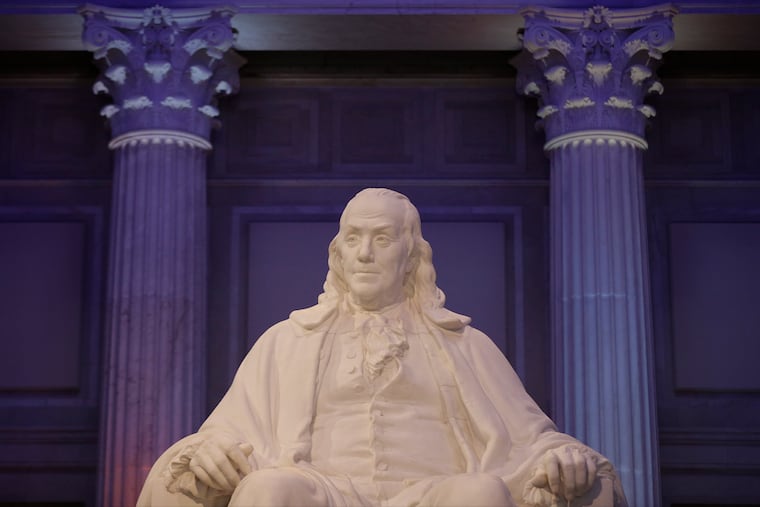Our rights don’t come from government, and other lessons in civics for ruling-class elites
Politico journalist Heidi Przybyla and other elites would do well to learn that human beings have rights no one — not another individual, and certainly not a government — can infringe upon.

One of the most striking aspects of America’s steady slouch toward totalitarianism is that our most educated and influential citizens are often our most ignorant.
Take, for example, Politico reporter Heidi Przybyla.
During a recent appearance on MSNBC’s All In with Chris Hayes, Przybyla felt the need to warn the nation about Christian nationalists. With patronizing intonation, Przybyla explained: “They believe that our rights as Americans, as all human beings, do not come from any earthly authority. They don’t come from Congress, they don’t come from the Supreme Court, they come from God.”
Though she later apologized for her remarks, I have to wonder: Is someone as accomplished and educated as Przybyla really this ill-informed? If so, Przybyla is not alone, according to Phil Kerpen, president of the Committee to Unleash Prosperity, a free market educational group.
This year, Kerpen’s group released a first-of-its-kind survey of American elites’ attitudes and beliefs about government and individual rights. The survey defines “elites” as “people having at least one post-graduate degree, earning at least $150,000 annually, and living in high-population density areas (more than 10,000 people per square mile in their zip code).”
The big takeaway, Kerpen told me, is these elites think people have too much freedom in this country and not enough government control. Kerpen said that while the survey did not ask a specific question about where our rights come from, “these elites think that most Americans have too much control over our own lives, and they want more government power. So it’s pretty clear the elites don’t believe our rights are derived from anything other than government.”
The most terrifying part of the poll: 70% of the elites surveyed trust the government to “do the right thing most of the time.” This is a dangerous precedent and the type of thinking that leads to totalitarian abuse by those in power.
The reason the U.S. Constitution and law can be changed is because America is a self-governed nation. The concept of self-governance springs from the idea that human beings have rights no one — not another individual, and certainly not a government — can infringe upon.
When Thomas Jefferson put quill to parchment for the Declaration of Independence in the summer of 1776, he wrote about ”the laws of Nature and of Nature’s God” to elucidate truths that were self-evident — that all men are created equal and had certain unalienable rights. He wasn’t inventing a new concept. He was using the ideas brought forth by the leading intellects of the British Enlightenment, especially John Locke.
Locke’s philosophies are what the American way of life is built upon: the rule of law, liberalism, republicanism, scientific inquiry, and tolerance, especially of various religious views. The First Amendment does not grant people the right to religious freedom or speech. Rather, those rights are inherent to every person at their creation. In the declaration, Jefferson wrote, “That to secure these rights, Governments are instituted among Men, deriving their just powers from the consent of the governed.”
In other words, the government doesn’t grant us our rights. The government can only enumerate rights, and then protect them from infringement.
One need not be religious to believe rights are inherent to humanity; some of the leading Founding Fathers were not. Thomas Paine, who came to Philadelphia after meeting Benjamin Franklin in London, was a 1700s version of a progressive — a radical whose pamphlet Common Sense ignited the American Revolution. Paine also found the Old and New Testaments to be “impositions, fables, and forgeries.” While he acknowledged “one God, and no more,” he also believed that ”my country is the world, and my religion is to do good.”
The inherent rights of all people is not a new construct of Christian nationalism, it is a long-held belief of religious and secular Americans that is foundational to everything our society is built upon. That Przybyla and other highly educated people on the left obsess over Christian nationalists believing rights originate somewhere other than government — as if that were a dangerous thing — smacks of conspiracy theory-level ignorance.
This is a calamity for our nation. Przybyla and her ilk need an enlightenment of their own, and would do well to remember Hamlet’s exhortation to his well-educated friend: “There are more things in heaven and earth, Horatio/ Than are dreamt of in your philosophy.”